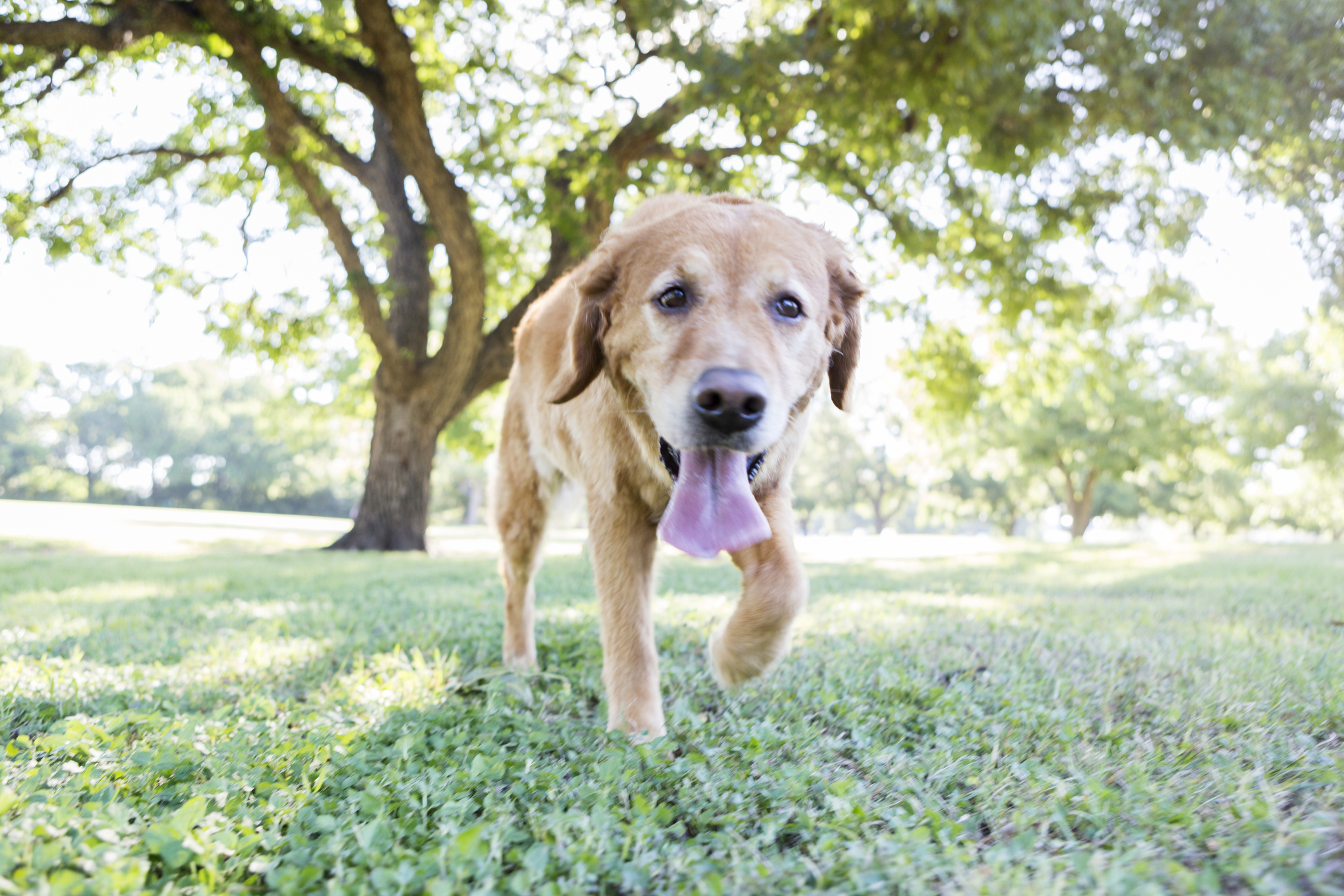
When Does a Dog's Troubled Breathing Become a Concern for Cancer?
You’re used to your dog panting audibly after a healthy run or on a hot summer’s day. But if your pup begins to breathe rapidly, struggle for air or cough frequently, something is probably wrong with their health. Although we never want to think the worst, one of the potential causes of breathing problems in dogs is lung cancer.
Lung cancer is one of the rarer forms of dog cancer, but it does occur. Unfortunately, its symptoms are often similar to those of other respiratory problems. If your dog is coughing, breathing heavily or wheezing—while exercising or resting—you shouldn’t hesitate in seeking veterinary help to determine if this devastating disease is to blame.
Understanding canine lung cancer
Lung cancer, also called canine pulmonary adenocarcinoma, is the most common form of malignant lung tumor in dogs. This form of cancer is particularly aggressive and has a tendency to spread to other body parts rapidly—namely the lymph nodes, bones and other organs. After the cancer spreads, it is much harder to treat and often results in a significantly reduced lifespan.
Primary lung tumors (or tumors that originate in the lungs) are some of the rarest forms of cancer found in dogs. It’s more likely that a lung tumor is a product of another form of cancer spreading to the lungs. However, primary forms of lung cancer are becoming increasingly common, especially in dogs over the age of 10. Experts believe this may be due to a combination of longer canine lifespans, better cancer detection and higher exposure to cancer-causing substances like smoke and chemicals. Unfortunately, there is no single identifiable cause of this disease.
Symptoms of lung cancer in dogs

The symptoms of lung cancer in dogs are largely related to the respiratory system. Dogs with pulmonary adenocarcinoma commonly experience labored and rapid breathing, coughing and wheezing. These problems may also cause lethargy, a significantly reduced exercise tolerance and the production of blood when coughing. Other common symptoms of cancer, including weight loss, inappetence, vomiting and diarrhea, might also occur.
The severity of the respiratory symptoms may vary depending on the size and location of the tumor in the lungs. Early detection of this disease is particularly difficult, since symptoms do not typically present until the tumor has grown large enough to begin affecting the lung’s ability to function properly. Additionally, up to a quarter of all pets with lung cancer won’t show any symptoms of disease, making early detection almost impossible.
Unfortunately, these symptoms also make it difficult to discern your pup’s ailment without extensive testing. Many of the signs of lung cancer are similar to those of respiratory infections, heartworm disease and even asthma. For these reasons, it’s vital that you contact your vet upon noticing signs of breathing trouble. None of these conditions are healthy for your dog to manage on their own, and all can be quite dangerous if your dog is struggling to breathe.
Contacting your vet and having them run tests, including X-rays and blood work, can determine the underlying cause of your dog’s labored breathing and coughing. If the problem is indeed cancer, fast treatment may make it easier to remove the tumor and prolong your furry friend’s life.
Treatment and life with lung cancer
One of the most common treatment avenues for canine lung cancer is surgery, during which the affected portion of the lung will be removed. Surgery is usually only possible on tumors of moderate size that are not near other organs.
For more severe tumors that are inoperable or tumors that have spread to other areas of the body, chemotherapy or radiation are usually the next best options. Alternative therapies may also be useful in prolonging your dog’s life and/or making them more comfortable during conventional treatment.
Unfortunately, due to the rate of metastasis in lung cancer, many dogs are given approximately 12 months to live. During your dog’s remaining time, it’s particularly important to do what you can to make them comfortable and happy. Because the cancer affects your dog’s lungs so intensely, paying attention to their breathing is essential. It’s unlikely your dog will be able to perform intense exercise. Low-energy stimulation, including mental challenges, can entertain your pet without forcing them to overexert themselves and strain the lungs.
Additionally, you’ll need to be mindful of the air quality in your environment to make breathing as easy as possible for them. Dogs with lung cancer should also never be exposed to second-hand smoke of any kind. A humidifier and air filter can remove airborne irritants and make breathing more comfortable.
Discovering that your dog is experiencing breathing problems can be scary for any dog lover. However, with fast action, you can help your pup get a diagnosis and treatment right away for the best chance at a happier, longer and more comfortable life.


